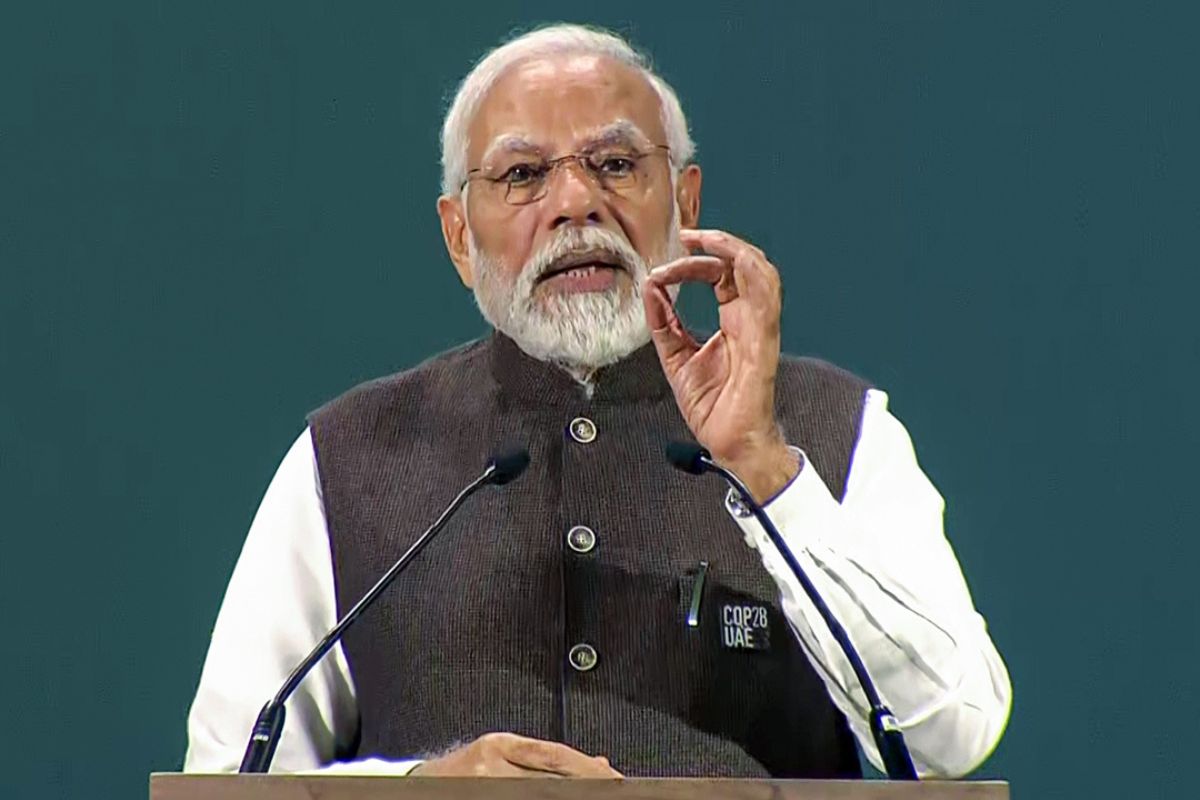Prime Minister Narendra Modi on Friday delivered a Special Address at the COP-28 in Dubai and offered to host the COP-33 summit in India in 2028, while proposing a new pro-planet Green Credits initiative for the creation of carbon sinks through community participation.
Addressing the High-Level Segment of the COP-28 for Heads of State and Heads of Government at the Summit, PM Modi said that COP efforts had established global welfare was not possible without protection of interests of all and without everyone’s involvement.
Advertisement
He said the Green Credits initiative to create carbon sinks through community participation would go beyond the commercial mentality of carbon credits, and hoped all nations would join it.
The PM said: “We do not have much time to rectify the mistakes of the previous century. A small part of humanity has blindly exploited nature. But the entire humanity, especially the residents of Global South, is paying the price.”
The Prime Minister said: “If we think only of our well-being, it will lead the world towards darkness. Every person sitting in this hall, every head of state, has come here with a great responsibility. We all must fulfill our duties. The whole world is watching us today, and the future of this planet is at stake.”
Mr Modi said: “We must succeed. We have to be decisive, We must resolve that every country will fulfill the climate targets it has set for itself, every commitment it has made. We have to work in unity. We must resolve to work together, help each other, and cooperate.”
He said: “We must allocate appropriate share to all developing countries in the global carbon budget. We have to be more balanced. We must resolve to move forward while maintaining balance in Adaptation, Mitigation, Climate finance, Technology, Loss and damage.”
The Prime Minister said: “We have to be ambitious. We must resolve that energy transition should be just, inclusive, and equitable. We have to be innovative. We must resolve to continuously develop innovative technology. We must rise above our self-interest and transfer technology to other countries. Strengthen the clean energy supply chain.”
India is committed to the UN Framework for Climate Change Process, he said. “I hope that the review of the Global Stock-take in the coming 12 days will lead us to a safe and bright future. The decision to operationalize the Loss and Damage Fund taken yesterday has increased our hopes,” he said.
He said India had presented before the world an exemplary balance between Ecology and Economy. Despite constituting 17 per cent of the world’s population, India’s contribution to global carbon emissions is less than four per cent.
India is one of the few economies on track to meet its NDC (nationally determined contribution) targets. He said: “We achieved emissions intensity targets 11 years ago. We achieved non-fossil fuel targets nine years ahead of schedule.”
But India does not stop here, he said. “Our goal is to reduce emissions intensity by 45 per cent by 2030. We have decided to increase the share of non-fossil fuels to 50 per cent. And we will continue progressing towards the goal of net-zero emissions by 2070.”
In India’s G20 Presidency, India had consistently emphasized the importance of climate issues with the vision of ‘One Earth, One Family, One Future,” he said.
For a sustainable future, the G20 under India’s Presidency reached an agreement on the Green Development Pact. “We concluded principles for Lifestyles for Sustainable Development. We are committed to tripling global renewable energy,” he said.
The Prime Minister said India has promoted the hydrogen sector for alternate fuels and launched the Global Biofuels Alliance. Under India’s Presidency, he said, the G20 came to the conclusion that “commitments for climate finance required to be increased from billions to trillions.”
In Glasgow, India initiated the Infrastructure Resilience Initiative for Island States, Mr Modi said. India is pushing projects related to this initiative in 13 countries.
At Glasgow itself, “I introduced the vision of Mission LiFE – Lifestyle for Environment,” he said. An International Energy Agency study has said this approach can reduce annual carbon emissions by two billion tons by 2030, he said.
















